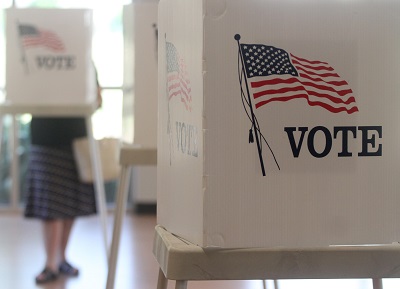George P. Shultz: An Appreciation
With the recent passing George P. Shultz, who served as U.S. Secretary of State from 1982 to 1989, America lost perhaps its greatest living statesman. Bay Area Council Economic Institute Senior Director Dr. Sean Randolph wrote this appreciation.
I was privileged to work for Secretary of State Shultz for nearly five years while serving on the Policy Planning Staff (the in-house think tank reporting to the Secretary) and in other positions at State, which prompts me to share a few reflections on his legacy that may not be covered in the media.
Shultz had a deep understanding of the economy, having not only served as Secretary of Labor, Director of the Office of Management and the Budget, and Secretary of the Treasury, but also in the private sector at Bechtel Corporation, where he was president before being appointed as Secretary of State by Ronald Reagan.
When he assumed that role in 1982 China policy was under stress, with persistent pressure from Beijing to weaken U.S. support for Taiwan. The American position was wavering. As an Assistant Secretary of State for East Asian and Pacific Affairs explained the thinking at the time, “China policy is like riding a bicycle – you have to keep pedaling if you don’t want to fall down.” Shultz didn’t believe it, and felt it was essential that the U.S. unapologetically assert its interests. Soon after his arrival there was a change of tone and the U.S. retreat stopped. With mutual respect established, relations became stronger.
That exemplified Shultz’s approach to statecraft, where his basic approach was to sit down with the other party, identify in a clear-eyed way each side’s key interests, and if an accommodation was possible find the path forward. There was no rhetoric, but U.S. interests and values were always clear.
Shultz was also a scholar, with an enquiring approach to issues. A past professor of economics at MIT, early in his tenure at State he convened weekend roundtables to explore important issues with inside and outside experts. That deep interest in problems and their resolution carried over to his role at Stanford University’s Hoover Institution, where he continued to dedicate himself to public policy.
One of those issues was global denuclearization, a commitment carried over from his role in the arms treaties reached under Reagan and Gorbachev. The other was climate change. Shultz drove a hybrid, and when oil interests placed a measure on the California ballot that would have eviscerated AB32, the state’s groundbreaking law regulating greenhouse gasses, he campaigned across the state with Tom Steyer, a climate activist, major Democratic donor, and later candidate for the Democratic nomination for president, against it. In the end the measure was overwhelmingly defeated by California’s voters. For Shultz, principle always prevailed over partisanship.
The challenges during George Shultz’ time as Secretary – including nuclear tensions and the ongoing cold war with the Soviet Union – were formidable, as they are today. Although he has left us, we should remember how he conducted himself and the affairs of state, and the importance of the clear-eyed and principled assertion of American leadership.





